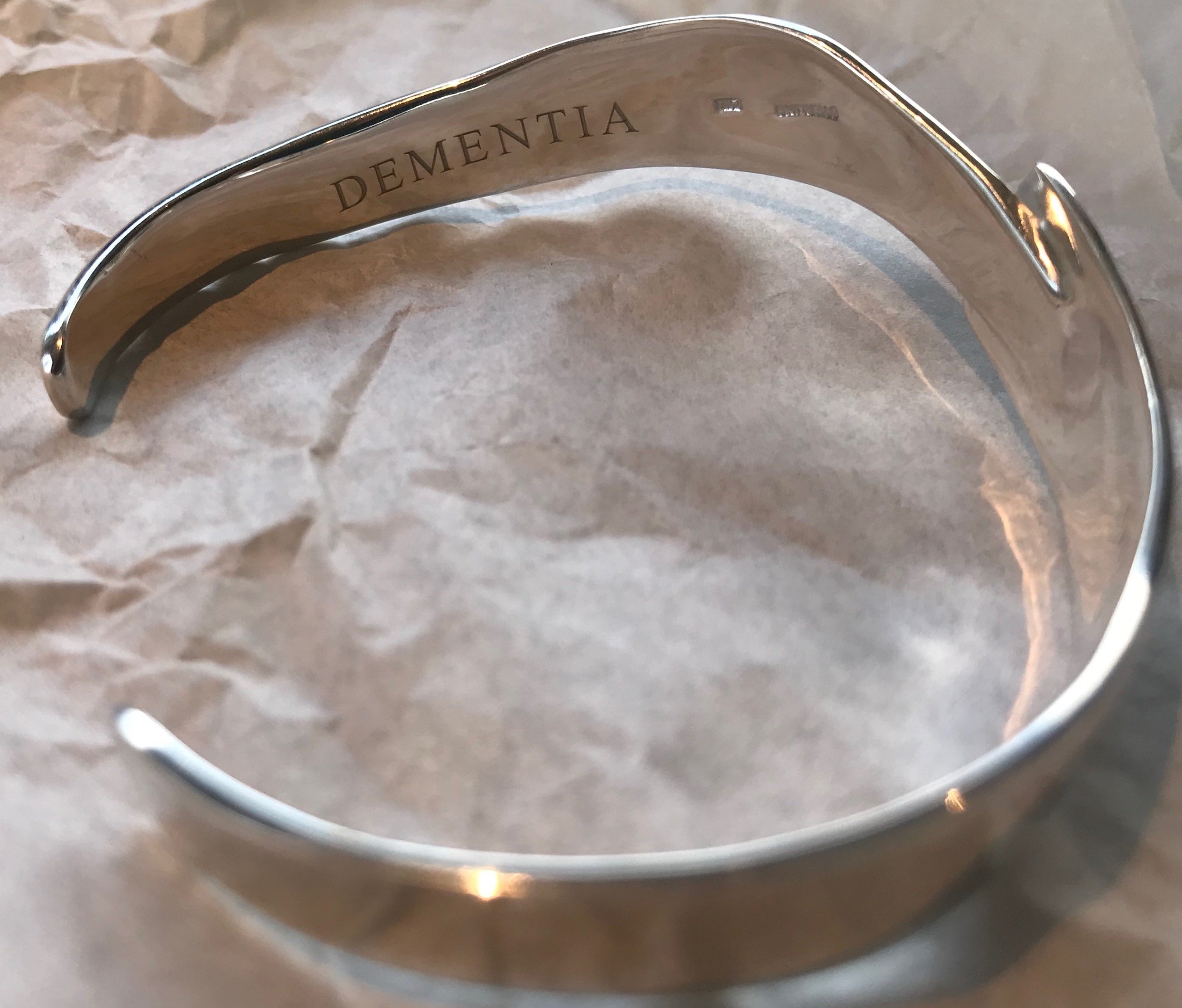Dementia Medical Alert Bracelets
Dementia is a progressive neurological disorder that impairs cognitive functioning, memory, and behavior, causing difficulties in everyday activities. There are various types of dementia, each with its own set of symptoms and causes. It is critical for people with dementia to wear a medical ID bracelet to ensure proper care and treatment in case of an emergency.
Alzheimer's disease
Alzheimer's disease is the most common type of dementia, accounting for approximately 60-80% of all cases. It is a progressive disorder that causes brain cells to degenerate and die, leading to memory loss, cognitive impairment, and changes in behavior. People with Alzheimer's disease may also experience difficulty with language, visual perception, and judgment. Wearing a medical ID bracelet can be helpful as people with Alzheimer's disease may wander away from home or become disoriented in public places.
Vascular Dementia
Vascular dementia is caused by damage to the blood vessels that supply the brain with oxygen and nutrients. This damage can occur due to strokes, which lead to impaired blood flow to the brain. Symptoms of vascular dementia can include difficulty with problem-solving, memory loss, and confusion. It is important for people with vascular dementia to wear a medical ID bracelet as they may be at a higher risk of experiencing a stroke or other cardiovascular events.
Lewy Body Dementia
Lewy body dementia is a type of dementia that is caused by abnormal deposits of alpha-synuclein protein in the brain. Symptoms of Lewy body dementia can include visual hallucinations, fluctuations in alertness and attention, and tremors. People with Lewy body dementia may also be at an increased risk of falls and injuries, making it important to wear a medical ID bracelet.
Frontotemporal Dementia
Frontotemporal dementia is a type of dementia that affects the frontal and temporal lobes of the brain, which are responsible for personality, behavior, and language. People with frontotemporal dementia may exhibit changes in personality, language difficulties, and a decline in social skills. Wearing a medical ID bracelet can be helpful as people with frontotemporal dementia may become agitated or disoriented in unfamiliar situations.
Mixed Dementia
Mixed dementia is a combination of two or more types of dementia, most commonly Alzheimer's disease and vascular dementia. People with mixed dementia may experience symptoms of both types of dementia, such as memory loss, confusion, and difficulty with language. It is important for people with mixed dementia to wear a medical ID bracelet to ensure proper care and treatment in case of an emergency.
Wearing a medical ID bracelet is crucial for people with dementia as they may experience confusion, disorientation, or wander away from home, making it difficult for emergency responders to provide appropriate care. In addition to the specific type of dementia, the medical ID bracelet should include the individual's name, emergency contact information, and any relevant medical information such as allergies, medications, or other health conditions. It is also recommended to include information about the individual's dementia diagnosis, such as the type and severity of the condition.
Dementia is a progressive neurological disorder that affects cognitive functioning, memory, and behavior. There are various types of dementia, each with its own set of symptoms and causes. Wearing a medical ID bracelet is critical for people with dementia as it helps ensure proper care and treatment in case of an emergency. The medical ID bracelet should include the individual's name, emergency contact information, any relevant medical information, and information about the individual's dementia diagnosis.
Dementia Online Resources
Alzheimer's Association: The Alzheimer's Association is one of the most well-known organizations dedicated to Alzheimer's disease and other dementias. They offer educational resources, support groups, a 24/7 helpline, and information about research and clinical trials.
Alzheimer's Society: This UK-based organization provides support and information to people affected by dementia. They offer resources for living with dementia, as well as research updates and opportunities to get involved.
Lewy Body Dementia Association (LBDA): LBDA focuses specifically on Lewy body dementia, a type of progressive brain disorder. They offer resources for caregivers, information on diagnosis and treatment, and opportunities for involvement in research.
Frontotemporal Dementia Association (FTD): This organization is dedicated to supporting individuals and families dealing with frontotemporal dementia, a group of disorders affecting the frontal and temporal lobes of the brain. They provide information, resources, and community support.
Dementia Alliance International (DAI): DAI is a global organization run by and for people with dementia. They advocate for the rights and needs of those living with dementia, offer support groups, and promote a more inclusive understanding of dementia.
UsAgainstAlzheimer's: UsAgainstAlzheimer's is an advocacy organization that focuses on raising awareness about Alzheimer's disease and related dementias. They work to drive policy changes, accelerate research, and provide support for those affected.
Caregiver Action Network (CAN): While not specific to dementia, CAN provides resources and support for caregivers, including those caring for individuals with dementia. They offer educational materials, online support groups, and advocacy resources.
Dementia Friends: Dementia Friends is a global movement that aims to raise awareness and understanding about dementia. They offer information sessions to help individuals and communities learn more about dementia and how to support those affected.

